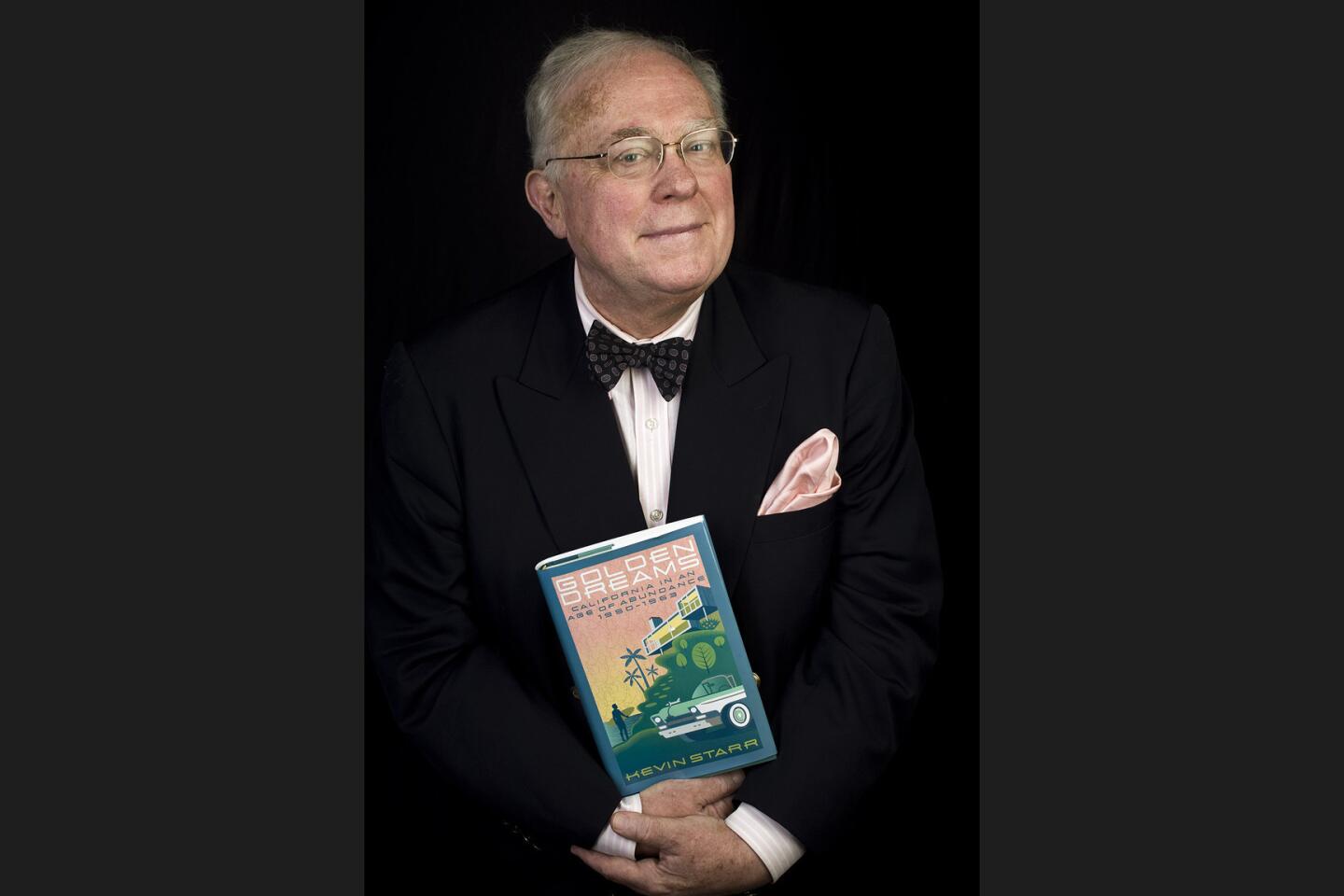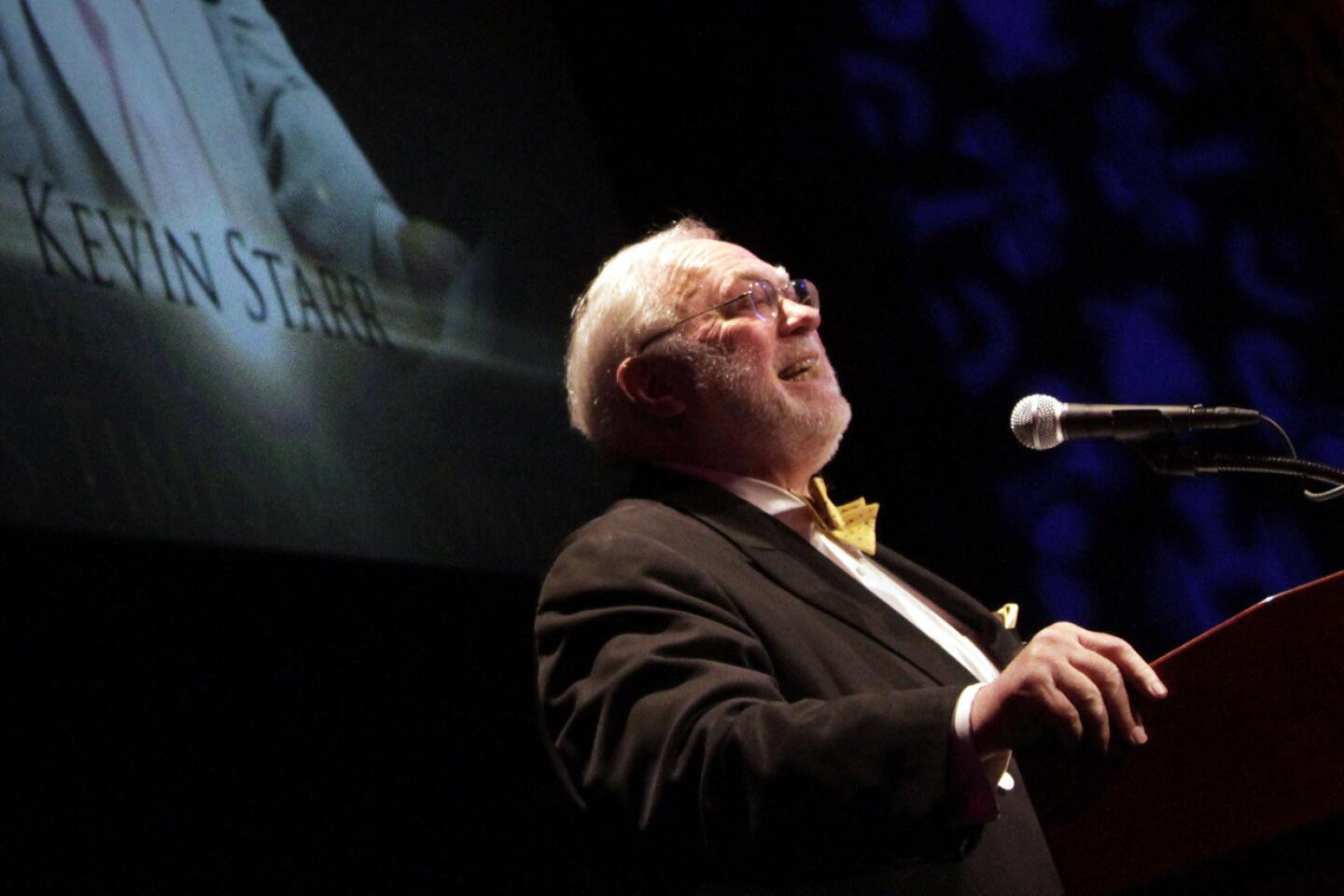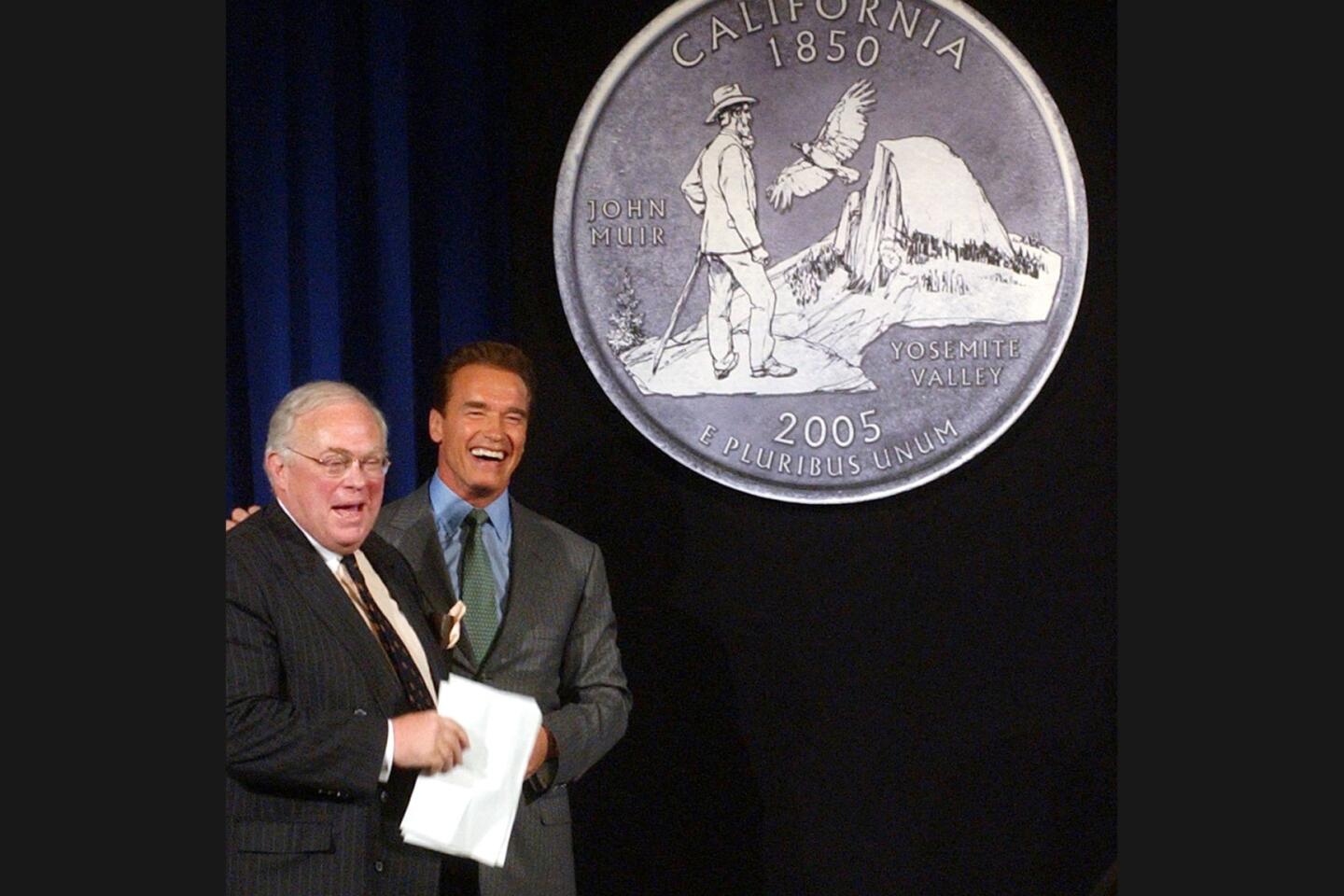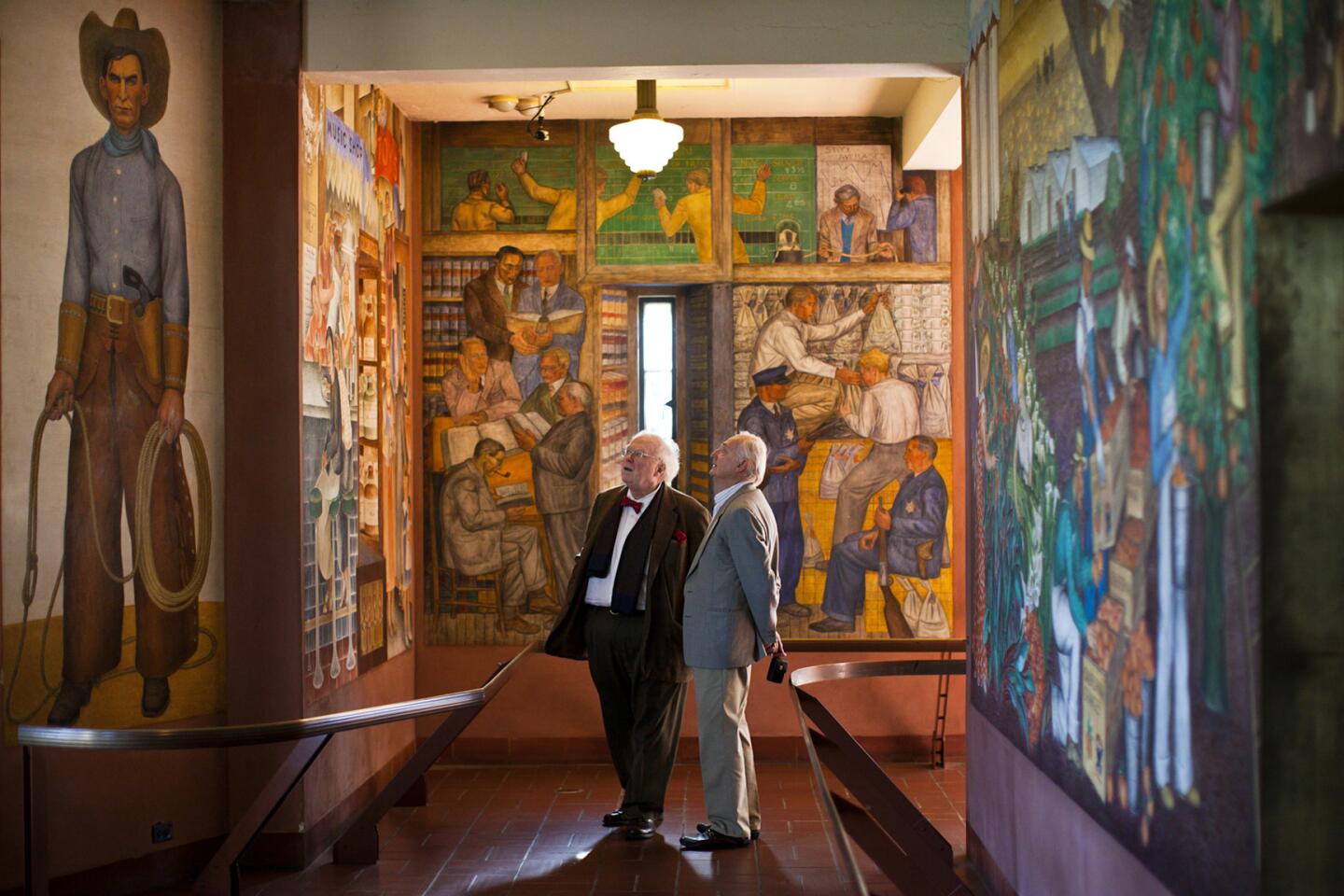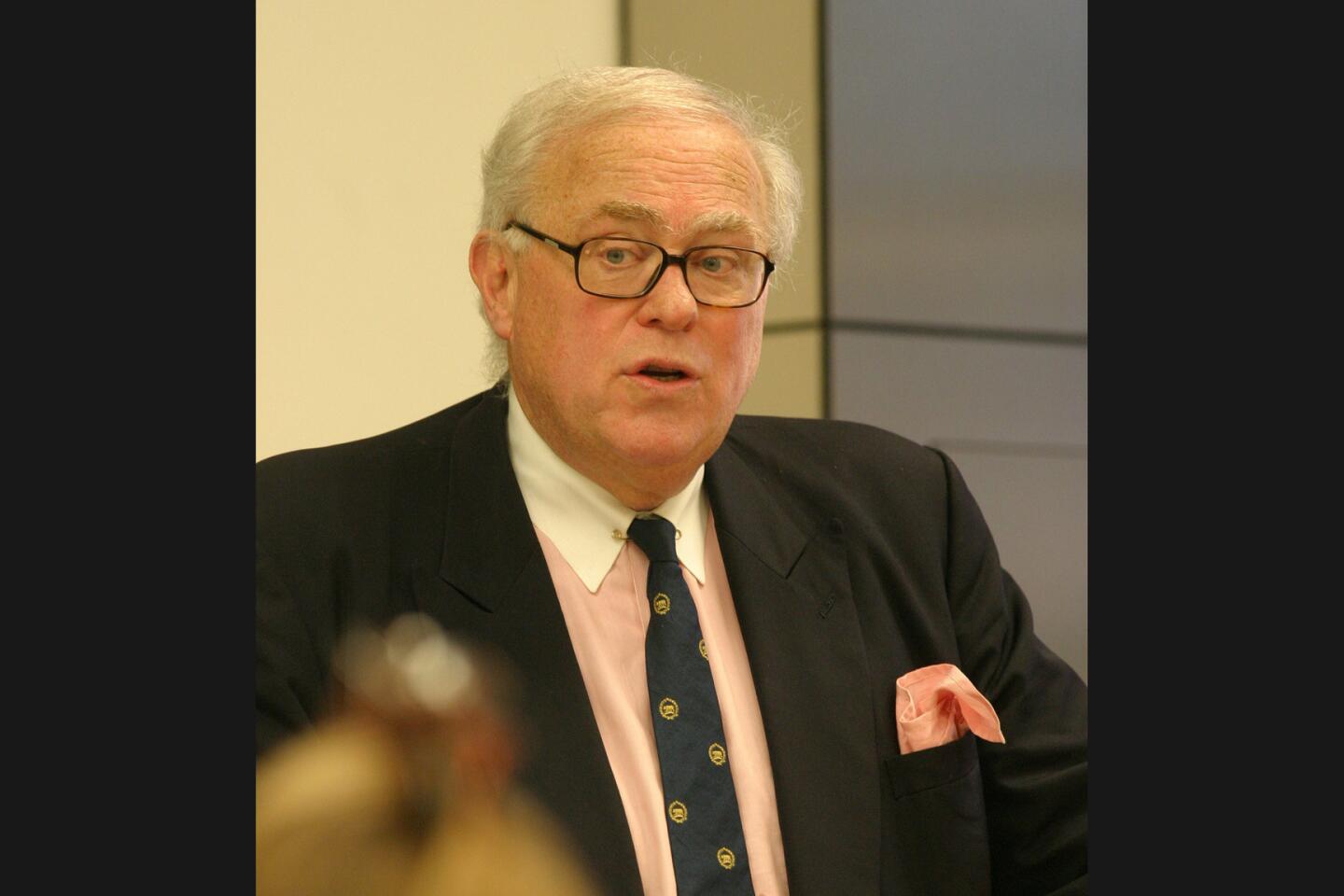Kevin Starr’s love of California, with all its complexities and paradoxes, was unending
- Share via
I once watched Kevin Starr address a gathering of civic leaders in Modesto. This was some 20 years back, and I can’t recall much of the speech. But what I can remember, vividly, is how enthusiastic Starr seemed to be, presenting his thoughts on California before a small audience on a weeknight in a small city in the middle of the San Joaquin Valley. He had written his remarks in longhand and they ran for several pages. He didn’t skip a page.
The historian’s enthusiasm for his lifelong topic — his native state of California — knew no boundaries and resonated, infectiously, in every chapter he wrote and in every media interview he granted and in his every public appearance. And there were many chapters, many interviews, many talks.
What I also remember from that night was how Starr described the valley where I grew up, that vast, flat monument to irrigated agriculture running through the middle of the state. He called it “the invented garden,” and at first mention this phrase brought a delighted murmur from the crowd.
These were folks who lived in a town that greets visitors with a roadway arch that proclaims “Water, Wealth, Contentment, Health.” Starr had dropped into town and presented them with a two-word phrase that, on reflection, captured even better both the wonders of the valley and the causes for worry that animate it. For there are prices to be paid for the invention, and the garden, as do all societies, requires constant weeding.
All of this is to suggest that Starr, who died Saturday at the age of 76, knew all of California, loved it with unmatched ardor and at the same time understood its paradoxes, its complexities and its dynamism.
This is an ever-changing state that from the start has refused to sit still for a photograph.
Pity the journalist who parachutes in from New York or London with an assignment to “profile” California. Even the natives can’t capture the whole of it — the natural beauty and often-obscene manipulation of nature, the steady march of progressive values countered by the recurring outbursts of tribalism, the great wealth and the pockets of even greater poverty, and so on down the golden line.
“One cannot, as yet, properly place California in the American scheme of things,” the social historian Carey McWilliams wrote in 1948 as the state was celebrating its centennial. “The gold rush is still on, and everything remains topsy-turvy. The analyst of California is like a navigator who is trying to chart a course in a storm: the instruments will not work; the landmarks are lost; and the maps make little sense.”
McWilliams’ “as yet” still applies. But with Kevin Starr, a generation of Californians had a historian eager to fly into that storm, again and again. As if his “Americans and the California Dream” series of histories was not enough, Starr also was more than willing to offer navigational tips and observations to any journalist or politician who sought his counsel.
I remember going to his Sacramento office in the mid-1990s, when he served as state librarian. I was seeking career advice, having grown itchy writing a biweekly newspaper column about California. Instead, I received an hourlong pep talk. Keep at it, was his theme; the California story is too wonderful, and too important, to walk away from. Why?
Perhaps he best gave his own answer in a preface to his 2005 history, a work that summarized and in some cases rethought much of his life’s work as a state historian. It was titled, simply, “California.”
California, Starr wrote, “had long since become one of the prisms through which the American people, for better and for worse, could glimpse their future. It had also become, not the exclusive, but a compelling way for this future to be brought into existence. California, noted Wallace Stegner, is like the rest of the United States —only more so.”
And Kevin Starr was like so many others in the long line of intellectual adventurers who for more than 150 years have struggled to capture California in words — only more so, much more so.
ALSO
Protesters swarm border crossing in San Ysidro over gas prices
How the UC system is bracing for an escalation of political clashes ahead of Trump
13.5 million Californians are covered by Medi-Cal. Here’s how Trump’s plan could cost the state
More to Read
Sign up for Essential California
The most important California stories and recommendations in your inbox every morning.
You may occasionally receive promotional content from the Los Angeles Times.
